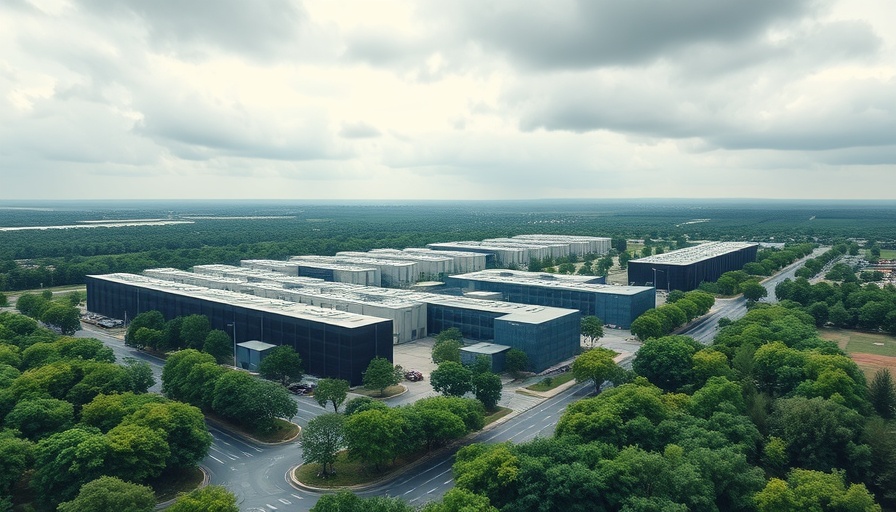
Data Centers and the AI Regulation Showdown
The ongoing political tussle over data centers in the United States was brought to the forefront with the introduction of President Donald Trump's "Big Beautiful Bill." This piece of legislation includes a controversial 10-year moratorium on state-level regulations concerning artificial intelligence (AI) deployments. While the intention may be to streamline operations on a national scale, stakeholders across the political spectrum express concerns regarding local governance and community rights.
Bipartisan Concerns Reflect Local Sentiments
One of the most vocal critics of this provision is Representative Thomas Massie, a Republican from Kentucky. He highlighted the local pushback against proposed data centers in his Congressional district, emphasizing the important role of local officials in determining site suitability. "The big beautiful bill undermines the ability of local communities to decide where AI data centers will be built," he tweeted, illustrating a growing rift over how and where these energy-intensive infrastructures should be deployed.
The National Conference of State Legislatures Weighs In
The National Conference of State Legislatures (NCSL) voiced its opposition to the AI provision through a formal letter to the Senate. The organization points out the necessity for communities to have a say in the siting of data centers, as these decisions directly impact local taxes, energy demands, and resources. Barrie Tabin, NCSL's legislative director, stated that effective local legislation is crucial to ensure that ratepayers are protected from rising utility costs. By sidelining state-level regulation, the bill may not only compromise local autonomy but also exacerbate energy issues and resource management.
The Debate over Innovation Versus Regulation
Supporters of the AI moratorium, like White House AI adviser David Sacks, argue that a united approach at the federal level is imperative to avoid a fragmented patchwork of state laws that can stifle innovation. They believe that a cohesive regulatory framework can harness AI development while encouraging efficiency and technological growth.
Understanding the Role of Public Sentiment in Policy Decisions
There's a human dimension to this debate, particularly as constituents express concern about the placement of massive data centers near residential areas. The emotional angle is not lost on lawmakers, with Representative Marjorie Taylor Greene drawing parallels between current AI development and the fictional dystopia of Skynet from the "Terminator" series. This dramatic framing speaks to public fears about unchecked technological advancement at the expense of individual rights and community well-being.
What Lies Ahead: Predictions and Potential Consequences
The implications of the ongoing political battle could shape the future of AI and tech legislation significantly. If the bill proceeds without amendments, we could witness increased tensions between local communities and federal authorities, potentially leading to greater civil unrest regarding technological policies. Conversely, if sufficient bipartisan efforts produce a more balanced approach, we may see a framework that promotes innovation while respecting local governance.
In conclusion, the future development of data centers is uncertain amid this contentious debate, which will require careful consideration of both innovation priorities and community impacts. It's crucial for stakeholders at every level to remain engaged as these discussions unfold, ensuring that policies reflect the needs and desires of those they ultimately affect.
 Add Row
Add Row  Add
Add 




Write A Comment